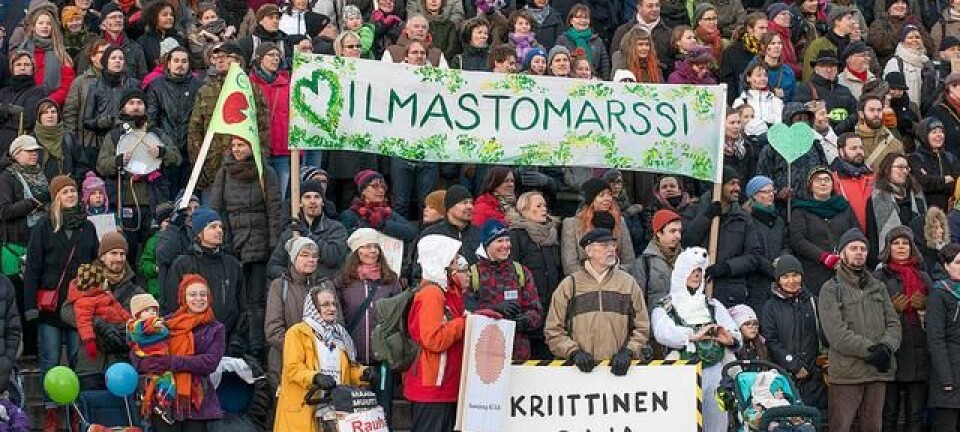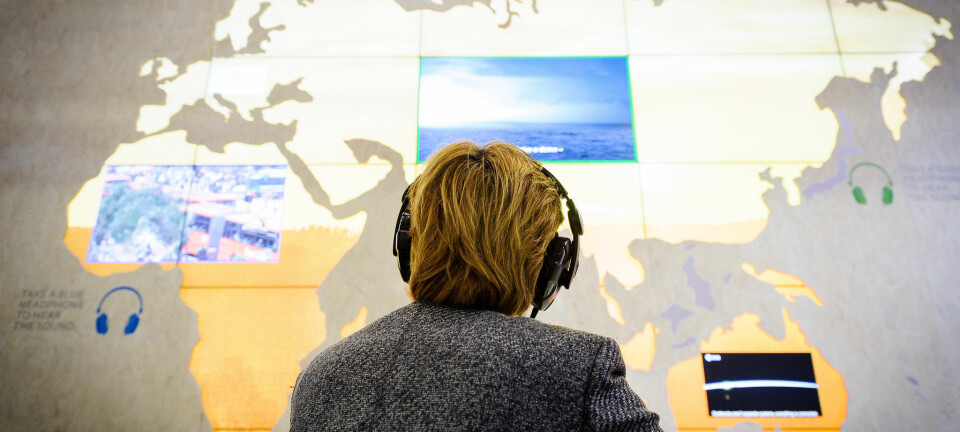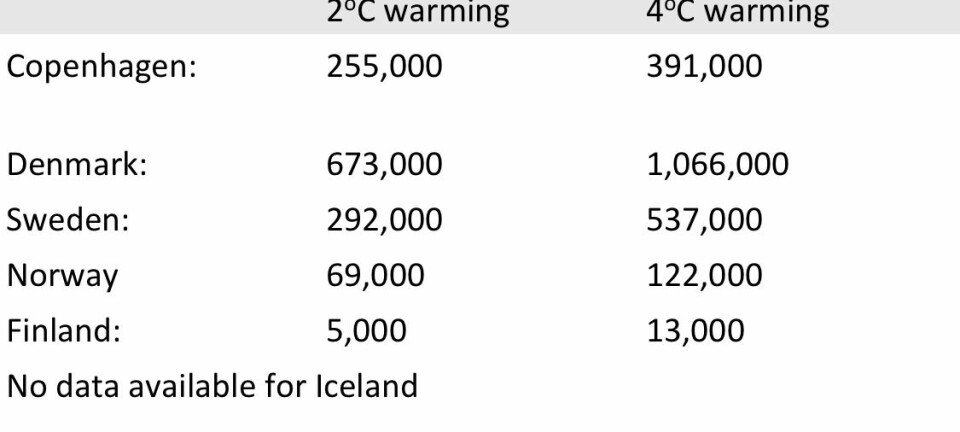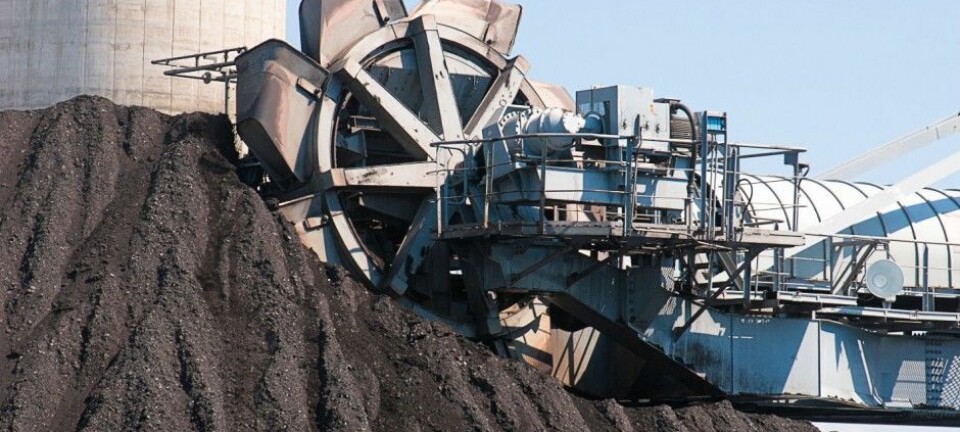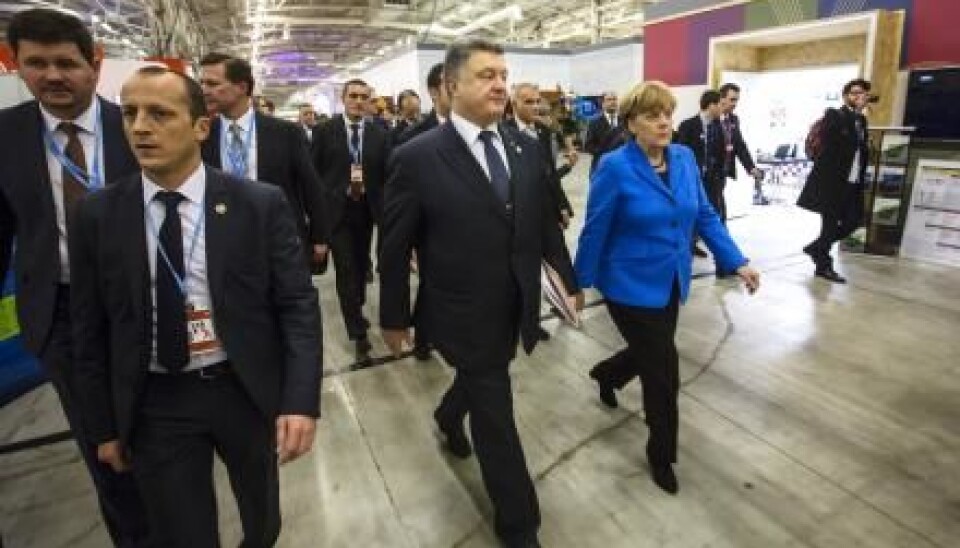
COP21 agreement is unclear and unrealistic: scientists
While world leaders are still patting themselves on the back over the new climate deal, scientists begin to voice their concerns.
There was jubilation and tears of joy in the large plenary hall of Le Bourget in Paris this Saturday when world leaders announced the new climate agreement that was reached after two weeks of intense negotiations at COP21.
But while politicians praise the new deal many scientists are sceptical of the politicians' efforts.
"The problem is that the agreement doesn’t say anything about how to achieve these fancy words and aspirations," says Professor Jørgen E. Olesen, from the University of Aarhus, Denmark, a former member of the International Panel on Climate Change (IPCC).
“The politicians have made sufficiently unclear goals so that they can defer the problem and not act right away,” he says.
1.5 degree Celsius limit is unrealistic
The agreement aims to keep global warming below two degrees Celsius and promises efforts to reduce the temperature rise to 1.5 degrees Celsius above pre-industrial levels.
But these promises sound like empty words to Olesen, who describes the targets as unrealistic given current emissions of greenhouse gases.
"It’s ambitious, but the politicians haven’t implemented [the policies] needed to achieve it,” he says.
“If we want to stay below a two degrees [Celsius] rise in temperature then we must act now. Otherwise, we won’t achieve this goal. But they’re not doing that."
Global warming will continue
According to Olesen, the amount of CO2 and other greenhouse gases that have already been emitted into the atmosphere is most likely enough on its own to cause 1.5 degrees of warming.
"Climate change is not dependent on what we put into the atmosphere right here and now. It’s dependant on what we have emitted overall throughout time,” he says, adding “we haven’t seen the final effects of the emissions that we have made so far."
Greenhouse gases stay in the atmosphere for many years, so even if we were to stop all greenhouse gas emissions today we would still see temperatures rise for many years to come.
“We have already experienced a temperature rise of one degree and our current emissions have presumably already committed us to an increase of 1.5 degrees," says Olesen, referring to research published in the journal Nature Geoscience.
For Olesen, the current deal is too little too late.
New technology needed to meet targets
Climate scientist Mads Knudsen, associate professor at Aarhus Univeirsity, agrees with his colleague.
"The consequence of the greenhouse gases that we’ve already emitted will become apparent over the next 100 years. If we’re to achieve the goal of 1.5 degrees [Celsius], then we have to do something about the CO2 that’s already in the atmosphere,” he says.
Knudsen explains that we have to remove CO2 from the atmosphere--but there is a problem: the technology that we currently have to do this is ineffective, he says.
He also questions the practicality of using average global temperature as a political goal.
"In a way the two degree [Celsius] temperature goal is artificial. It’s a diffuse target. What does it really mean? It’s very vague,” he says.
“This is partly because there is some uncertainty about what is actually required to keep the temperature increase under two degrees, and partly because the agreement says so little about how to reach this goal. In some cases it’ll be very difficult," says Knudsen.
Both Knudsen and Olesen believe that politicians should have set concrete targets for how much greenhouse gas emissions must be reduced by, rather than focusing on temperature rise.
"In many ways it’d be more appropriate --and more of a commitment--if we had aimed toward some specific goals for how much emissions should be reduced in the various industrial sectors," says Knudsen.
Scientist: The agreement is deceptive
James Hansen, a former NASA scientist and one of the first climate scientists to put the issue of climate change on the political agenda, has described the agreement as a “fraud” with “no action, just promises."
Many others agree.
“The text is vague on the overall ambition: it does not specify a date for the peaking of emissions, and specifies only that reductions should lead towards ‘greenhouse gas emissions neutrality’ in the ‘second half of the century’,” said Professor Nigel Arnell, University of Reading, to the Guardian.
Climate scientist Peter Langen from the Danish Meteorological Institute believes that the new deal will make a "huge difference" to addressing global temperature rise. But he agrees that it will be difficult to limit this rise to 1.5 degrees Celsius given current emissions of greenhouse gases.
"It’s very ambitious and I don’t know if it’s feasible,” says Peter Langen, adjunct associate professor at the Centre for Ice and Climate at the University of Copenhagen.
The agreement is not binding
Prior to the climate summit in Paris, individual countries submitted pledges to the UN, detailing how they will meet the challenges of climate change.
According to the new climate agreement, the countries' own climate plans and objectives are updated every five years and the objectives can only be strengthened and not reduced.
But the new agreement is not legally binding, says Professor Peter Nedergaard from the Department of Political Science at the University of Copenhagen, Denmark.
"Countries must constantly report to the UN on what they’re doing. But it's not a binding agreement and there’s no one who will beat them over the head or come after them with sanctions if they don’t keep their promises," he says.
Countries do not always keep to their promises
History shows that at least some countries will probably renege on their promises, says Nedergaard, specifically countries where climate change is not high on the public agenda.
According to Nedergaard, the most concrete part of the agreement is also at risk of being unfulfilled: the annual 100 billion dollar fund to help developing and vulnerable countries cope with climate change.
"It’s one thing to promise help, but it’s something else to actually come up with the money. We’ve seen in the past that many countries don’t provide the money that they say they will," says Nedergaard.
Many other reasons to praise the agreement
Despite the shortcomings and criticism, scientists also have praise for the climate agreement.
"It’s very positive that they have reached an agreement and that all countries have found common ground. It shows that there is a will to do something," says Knudsen
Langen refers to the deal as “fantastic” adding that the politicians are right to set ambitious targets.
Professor Peter Nedergaard was especially impressed with the French hosts and their skilled diplomacy both before and during the summit.
"They managed to get China and the US to sign up, and those are the two big players who emit the most CO2 today," he says.
---------------------
Read the Danish version of this article on Videnskab.dk
Translated by: Catherine Jex
